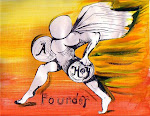The sort of ADRs that should be reported are:
- ADR's that have caused death or a serious illness
- Any ADR, however minor, if associated with a new medicine or one that is under continued monitoring (highlighted in the British National Formulary (BNF) with a ▼ black triangle)
- Any ADR, however minor, if associated with a child (under 18 years of age)
Yellow Cards are available from pharmacies and a few are presented near the back of the BNF as tear-off pages.
Reports from the Yellow Card scheme are available from the MHRA website.
Source: Wikipedia
Well, that's clear enough, isn't it? Incidentally, to all intents and purposes, the above is the information provided on the MHRA website, where it accompanies links to online Yellow Card forms. So, if our doctor doesn't complete a Yellow Card on our behalf, when we complain to him/her of something subsequent to taking a drug, we can always go online and complete a form, which the MHRA will address. Incidentally, I should mention that the Yellow Card scheme was set up in 1964, following the Thalidomide tragedy (this is the language used by the NHS Wales website, by the way).
Mind you, this business of patients reporting their own experiences is a relatively new thing, seemingly prompted by a recommendation made by the Health Select Committee, following its report into the influence of the pharmaceutical industry, in 2005 - the only recommendation it made that was taken up, to my knowledge - which suggested that a country-wide system of patient reporting be put in place "as soon as possible". The NHS Wales website carries a nice little piece, complete with jolly quotes-you-like from your favourite healthcare bureaucrats, which is dated October, 2005, at the time of the UK pilot roll-out. I didn't realize it was as recent as that. Importantly, for Kent Woods, CEO of the MHRA, patient reporting would provide new insight and permit the public to become involved in medicines regulation. My own experience with the MHRA suggests that public involvement goes no further than filling out Yellow Cards.
Meanwhile, Dr Patricia Wilkie, Chairman of the CSM’s Working Group on Patient Reporting, was even more effusive about the role of direct patient reporting, declaring that it was essential for medicines safety monitoring. Moreover, it would be an important source of information for patients about their medicines. However, as ever, there is a counterproposition to this optimistic propoganda.
Back in August, 2003, Charles Medawar reported that he had conducted an analysis of anonymized Yellow Cards pursuant to a series of investigations undertaken by the BBC's Panorama, concerning the risks associated with Seroxat. He and his co-authors discovered significant failings in the way the system was being operated. "Chaotic and misconceived" was the upshot, if I remember correctly. The MHRA had seemingly systematically failed to follow up on reports of patient suicidality. Yellow cards submitted by drug companies used euphemistic language to conceal the true nature of the side effect experienced. Similarly, several different terminologies would be used to describe essentially the same complaint, thus making a side effect look less significant in terms of its occurrence than was the true case. And so on.
However, you will be pleased to know that the MHRA's excellent Chairman, Prof Sir Alasdair (that's D-A-I-R) Breckenridge, regarded the Yellow Card scheme as "an important way that the MHRA monitors drug safety." Back in January, 2005, when Prof Breckenridge gave this thunderous endorsement of the reporting scheme, the Health Minister, Lord Warner, was announcing the publication of anonymized data, taken from Yellow Cards, on the MHRA's website, thus permitting public scrutiny, and access to data for the purposes of further research.
But I think it's worth taking another look at the view of Prof Alasdair (that's D-A-I-R) Breckenridge. We've already established that the Yellow Card scheme is important in providing fresh data on side effects, post-licensing. The MHRA, which has as its primary goal the protection of the public from shite medical products, lest we forget, has told us that this is true, in the person of its Chairman. I just thought I'd reiterate that.
In fact, the MHRA regarded the Seroxat Yellow Cards as so important that Prof Breckenridge claimed that
"...in the appropriate... in the appropriate cases, this is... these patients are followed up. The follow up rate for Yellow Card reports is some 48% - 49%."
That quotation is taken from the transcript of the Panorama programme Taken on Trust, a precursor to Secrets of the Drugs Trials. And, yes, he really did struggle as much as those ellipses suggest (no, they don't indicate that I have edited his words!). I should say that I'm not quite clear as to whether Breckenridge is referring to Yellow Cards in general, or Seroxat suicide reports, when he advises Shelley Jofre that 49% are followed up.
So, we have euphemisms. We have semantics. We have poor follow up - certainly in the case of Seroxat suicidality reports, and, I suspect, more generally. Indeed, I filed a Yellow Card myself, consequent to suicidal ideations experienced when I took fluoxetine. I received a hard copy of the report, and I've heard nothing since. This patient regards that as unforgiveable.
The MHRA is four years old.
Matt

.jpg)






2 comments:
Well quite. The scheme is a sham, and exists for the sole purpose of providing an additional illusion of care.
I for one have not reported the vast majority of AE's I have seen to the scheme (99%) quite simply because it is a sham, and a demonstrable sham. My colleagues do not report any AE's (apart from the most serious ones) either though I cannot speak for their motives.
Strange that audit systems don't audit themselves, yet pretend to be what they are not.
Glad to see you in the blogsphere Matt.
So, we have a system that is so discredited that those who are supposed to populate it with data are demotivated to the point where they don't both? Terrific!
Also, when one picks up on these incongruities, and seeks to understand why the system operates as badly as it does, one is stonewalled, or labelled "vexatious". One is then left to draw one's own conclusions as to why this approach is taken. Massively incompetent, or corrupt: you take your pick. World leaders the MHRA certainly isn't, unless the world has very low standards, that is.
Matt
Post a Comment